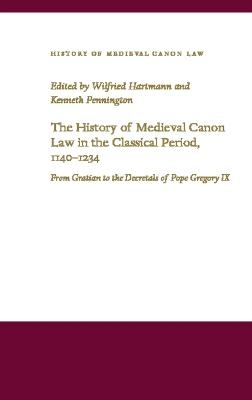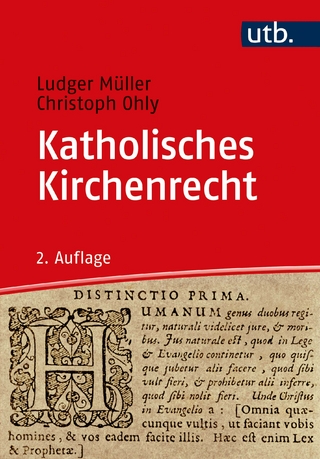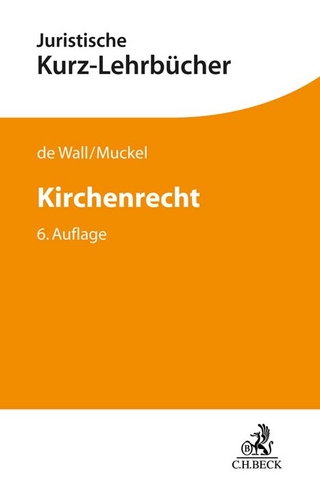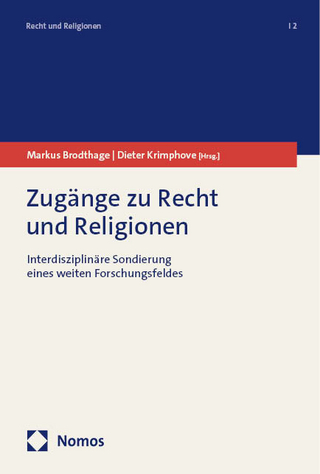
The History of Medieval Canon Law in the Classical Period, 1140-1234
From Gratian to the Decretals of Pope Gregory IX
Seiten
2008
The Catholic University of America Press (Verlag)
978-0-8132-1491-7 (ISBN)
The Catholic University of America Press (Verlag)
978-0-8132-1491-7 (ISBN)
- Lieferbar (Termin unbekannt)
- Versandkostenfrei innerhalb Deutschlands
- Auch auf Rechnung
- Verfügbarkeit in der Filiale vor Ort prüfen
- Artikel merken
Gratian has long been called the father of Canon Law. This volume covers the period from Gratian's initial teaching of canon law during the 1120s to just before the promulgation of the Decretals of Pope Gregory IX in 1234.
Gratian has long been called the father of Canon Law. This latest volume in the ongoing ""History of Medieval Canon Law"" series covers the period from Gratian's initial teaching of canon law during the 1120s to just before the promulgation of the Decretals of Pope Gregory IX in 1234.Gratian's contributions to the birth of canon law and European jurisprudence were significant: he introduced a new methodology of teaching law by using hypothetical cases and by integrating - and inserting in the texts themselves - his own comments on the canons. He also used the dialectical method to analyze legal problems that he raised in his cases. Though this methodology was first developed by Peter Abelard and others in the schools of Northern France, Gratian was the first to apply it to legal texts with the publication of his Decretum (ca. 1140). Because the Decretum was not just a collection of texts but an analysis of the sources and doctrines of ecclesiastical law, his book enjoyed immediate success across Europe. The Decretum was adopted by teachers from England to Italy and Germany to Spain. Gratian's successors later applied his methodology to the papal appellate decisions (decretals) that gradually became the foundation of canon law in the later Middle Ages.In this volume, distinguished legal historians contribute noteworthy essays on the commentaries on Gratian, the beginnings of decretal collections and commentaries on them, and the importance of conciliar legislation for the growth of canon law. There are also chapters on the influence of Roman law on canon law and the teaching of canon law in law schools.Contributors are James A. Brundage, Anne Duggan, Charles Duggan, A. Garcia y Garcia, Joseph Goering, Michael H. Hoeflich, Peter Landau, Wolfgang P. Muller, Jasonne Grabher O'Brien, Kenneth Pennington, and Rudolf Weigand.
Gratian has long been called the father of Canon Law. This latest volume in the ongoing ""History of Medieval Canon Law"" series covers the period from Gratian's initial teaching of canon law during the 1120s to just before the promulgation of the Decretals of Pope Gregory IX in 1234.Gratian's contributions to the birth of canon law and European jurisprudence were significant: he introduced a new methodology of teaching law by using hypothetical cases and by integrating - and inserting in the texts themselves - his own comments on the canons. He also used the dialectical method to analyze legal problems that he raised in his cases. Though this methodology was first developed by Peter Abelard and others in the schools of Northern France, Gratian was the first to apply it to legal texts with the publication of his Decretum (ca. 1140). Because the Decretum was not just a collection of texts but an analysis of the sources and doctrines of ecclesiastical law, his book enjoyed immediate success across Europe. The Decretum was adopted by teachers from England to Italy and Germany to Spain. Gratian's successors later applied his methodology to the papal appellate decisions (decretals) that gradually became the foundation of canon law in the later Middle Ages.In this volume, distinguished legal historians contribute noteworthy essays on the commentaries on Gratian, the beginnings of decretal collections and commentaries on them, and the importance of conciliar legislation for the growth of canon law. There are also chapters on the influence of Roman law on canon law and the teaching of canon law in law schools.Contributors are James A. Brundage, Anne Duggan, Charles Duggan, A. Garcia y Garcia, Joseph Goering, Michael H. Hoeflich, Peter Landau, Wolfgang P. Muller, Jasonne Grabher O'Brien, Kenneth Pennington, and Rudolf Weigand.
Wilfried Hartmann is emeritus professor of the medieval history of canon law at the University of Tubingen. Kenneth Pennington is Kelly-Quinn Professor of Ecclesiastical and Legal History at The Catholic University of America. He is the author of numerous works including Pope and Bishops: The Papal Monarchy in the Twelfth and Thirteenth Centuries and The Prince and the Law, 1200-1600: Sovereignty and Rights in the Western Legal Tradition. Hartmann and Pennington are coeditors of the History of Medieval Canon Law series.
| Erscheint lt. Verlag | 30.10.2008 |
|---|---|
| Reihe/Serie | History of Mediaeval Canon Law |
| Verlagsort | Washington |
| Sprache | englisch |
| Gewicht | 781 g |
| Themenwelt | Recht / Steuern ► Allgemeines / Lexika |
| Recht / Steuern ► EU / Internationales Recht | |
| Recht / Steuern ► Öffentliches Recht ► Kirchenrecht | |
| Recht / Steuern ► Rechtsgeschichte | |
| ISBN-10 | 0-8132-1491-2 / 0813214912 |
| ISBN-13 | 978-0-8132-1491-7 / 9780813214917 |
| Zustand | Neuware |
| Informationen gemäß Produktsicherheitsverordnung (GPSR) | |
| Haben Sie eine Frage zum Produkt? |
Mehr entdecken
aus dem Bereich
aus dem Bereich
Interdisziplinäre Sondierung eines weiten Forschungsfeldes
Buch | Softcover (2024)
Nomos (Verlag)
79,00 €


